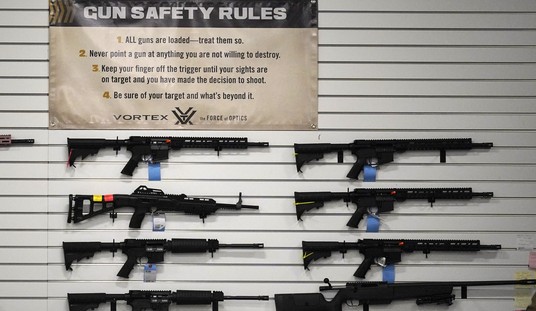Since the decision in New York State Rifle & Pistol Association v. Bruen was handed down by the Supreme Court on Thursday, scores of attorneys with gun control groups and in the employ of anti-gun politicians have been scouring the opinion in the hopes of finding some language they can use to continue to make it as hard as possible for the average citizen to exercise their Second Amendment rights. While Justice Clarence Thomas’ majority opinion doesn’t give them much room to work with, there is one footnote in the opinion that has me a little concerned.
The passage in question comes early in the Bruen opinion; page 4 to be precise. Thomas is pointing out that the vast majority of states across the country do not have any sort of “justifiable need” language in their statutes; instead they are shall-issue states where “authorities must issue concealed-carry licenses whenever applicants satisfy certain threshold requirements, without granting licensing officials discretion to deny licenses based on a perceived lack of need or suitability.”
“Suitability” wasn’t an issue raised in the Bruen case, but as Thomas acknowledges in his footnote, there are a few states that give licensing authorities leeway to determine whether or not someone is “suitable” to carry a firearm.
Three States—Connecticut, Delaware, and Rhode Island—have discretionary criteria but appear to operate like “shall issue” jurisdictions. Although Connecticut officials have discretion to deny a concealed-carry permit to anyone who is not a “suitable person,” the “suitable person” standard precludes permits only to those “individuals whose conduct has shown them to be lacking the essential character of temperament necessary to be entrusted with a weapon.”
As for Delaware, the State has thus far processed 5,680 license applications and renewals in fiscal year 2022 and has denied only 112. Moreover, Delaware appears to have no licensing requirement for open carry.
Finally, Rhode Island has a suitability requirement but the Rhode Island Supreme Court has flatly denied that the “[d]emonstration of a proper showing of need” is a component of that requirement.
While these three states may operate as “shall issue” in practice, there’s no guarantee that will continue to be the case in a post-Bruen environment, and more importantly, there’s nothing stopping states like New York, California, and New Jersey from replacing their arbitrary and subjective “justifiable need” provision with an equally arbitrary and capricious finding of “suitability” before someone can lawfully own a firearm.
Here’s what the Connecticut Office of Legislative Research has to say about that state’s suitability standard:
In a recent Superior Court case, the court quoted an 1882 Connecticut Supreme Court opinion stating that suitability “is not defined by the law so that its application can be determined as mere matter of eye-sight, but it is left necessarily to be determined solely by the judgment of the commissioners based upon inquiry and information. And that the particular manner of exercising such judgment cannot be controlled by any court is too obvious to require the citation of any authorities.”
Many court opinions dealing with suitability for gun permits cite an 1894 Connecticut Supreme Court decision which involved liquor licenses for the definition of suitability.
The word “suitable” as descriptive of an applicant for license under the statute, is insusceptible of any legal definition that wholly excludes the personal views of the tribunal authorized to determine the suitability of the applicant. A person is “suitable” who by reason of his character – his reputation in the community, his previous conduct as a licensee – is shown to be suited or adapted to the orderly conduct of [an activity] which the law regards as so dangerous to public welfare that its transaction by any other than a carefully selected person duly licensed is made a criminal offense. It is patent that the adaptability of any person to such [an activity] depends upon facts and circumstances that may be indicated but cannot be fully defined by law, whose probative force will differ in different cases, and must in each case depend largely upon the sound judgment of the selecting tribunal (Smith‘s Appeal from County Commissioners, 65 Conn. 135, 138 (1894)).
One court dealing with suitability stated that the government’s interest “is to protect the safety of the general public from individuals whose conduct has shown them to be lacking the essential character or temperament necessary to be entrusted with a weapon” (Rabbit v. Leonard, 36 Conn. Sup. 108, 115 (1979)). Another court stated that the “personal views of the agency members are necessarily a factor in the decision, and similar facts and circumstances will have varying probative force in different cases,” but the facts found by the board should provide a logical inference that the person poses some danger to the public if allowed to carry a weapon outside the home or business.
Subjectivity is baked into the suitability cake, so to speak, and I’m a little concerned that Thomas treats these three states so dismissively given that these suitability requirements could be just as easily abused to deny someone their right to carry as requiring them to demonstrate a “justifiable need.”
Granted, Thomas also explicitly says elsewhere in the opinion that “because any permitting scheme can be put toward abusive ends, we do not rule out constitutional challenges to shall-issue regimes where, for example, lengthy wait times in processing license applications or exorbitant fees deny ordinary citizens their right to public carry,” so if a state like California decided to adopt a “suitability” standard that was so broad the average law-abiding citizen would still be deemed unsuitable to carry a firearm in self-defense, presumably the Court would rule that language is unconstitutional.
That doesn’t mean states won’t try this gambit, however, and because Thomas implicitly gives his stamp of approval to “suitability” requirements as long as they don’t come with a “justifiable need” or “good cause” mandate, I wouldn’t be surprised at all if the subjective standard of suitability is soon enshrined in many blue-states’ supposedly “shall issue” statutes.









Join the conversation as a VIP Member